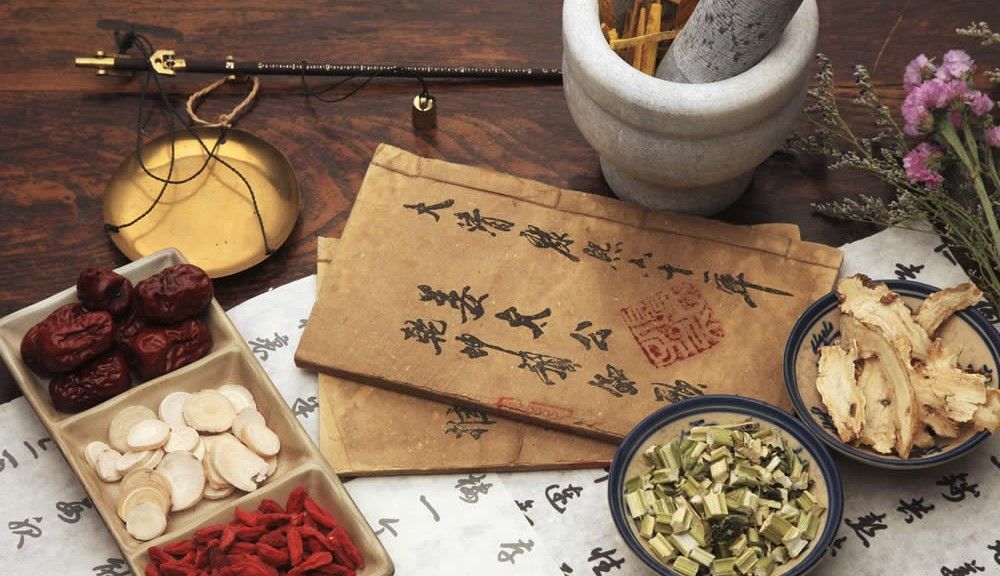
Previous
Does Milk Thistle Have Contraindications?

Next
Can a Healthy Lawn and a Healthy Liver Co-Exist?
Using Traditional Chinese Medicine for Liver and Eye Health
With three common liver imbalances to choose from, learn how selecting the right dietary therapy strategy can help improve eyesight.
According to Traditional Chinese Medicine (TCM), many problems with the eyes are related to the health of the liver organ system. Strategies to restore the liver to optimal function consequently improve eye health. A licensed practitioner of TCM is the only one who can responsibly administer the modalities of acupuncture and herbal remedies to correct such a liver imbalance. However, there is another, more user-friendly branch of TCM that can effectively accomplish the same feat. Those who take the time to learn about the imbalances that impact the eyes can use TCM dietary therapy to improve the health of their liver for their eyes’ benefit.
In TCM, the health of the liver goes far beyond any Western medical diagnosis. Herein lays one of TCM’s greatest strengths – the ability to detect an imbalance in an organ system prior to a confirmed illness. Historically considered to be the secret behind the longevity of many Chinese emperors, TCM practitioners were traditionally only paid when their patients were healthy. This is possible because indications of imbalance are detectable long before a physical problem manifests. By identifying which pattern a person’s signs and symptoms fall under, imbalances can be corrected before a serious illness takes hold.
Liver Imbalances That Affect the Eyes
As described by Giovanni Maciocia in The Foundations of Chinese Medicine, the following three TCM liver imbalances are behind a variety of eye-related problems:
1. Liver Blood Deficiency – Liver blood is believed to nourish and moisten the eyes. When the liver blood is deficient, common problems include blurry vision, myopia, “floaters” in the eyes, color blindness or dry eyes. In addition, liver blood deficiency can cause pale or scanty menstruation, fatigue and muscle cramps.
2. Liver Heat – When there is heat in the liver and liver channel, the eyes are likely to be dry, bloodshot, painful or have a burning sensation. In addition, liver heat is frequently connected with irritability, anger or frustration and may be accompanied by a headache.
3. Internal Liver Wind – Usually a result of extreme heat in the liver, internal liver wind may cause the eyeball to turn upwards and move involuntarily (nystagmus). In addition, liver wind is frequently associated with severe emotional stress, vertigo, dizziness, neck stiffness and headache.
TCM Dietary Therapy
Dietary therapy is considered to be a powerful tool for correcting organ imbalances and is often used in conjunction with the other branches of TCM, namely acupuncture, herbal therapy and Qi Gong (therapeutic movement exercise). For an eye problem that falls into one of the three liver imbalances listed above, the TCM treatment strategies (including dietary therapy) are:
• Tonify a liver blood deficiency
• Cool liver heat
• Extinguish internal liver wind
Foods known to accomplish these strategies are:
• Tonify liver blood – spirulina, chlorophyll- rich foods, dark grapes, blackberries, huckleberries, blackstrap molasses, gelatin, artichoke, beets, dandelion leaf, kelp, avocado, dates, black sesame seed, oysters, chicken soup, eggs, beef and organic animal liver.
• Cool liver heat – mung beans, mung sprouts, celery, seaweed, lettuce, cucumber, watercress, tofu, millet, plums, mushrooms, rhubarb, radish and daikon radish. Of particular note, chrysanthemum flower tea is known to clear liver heat and benefit the eyes, especially in cases of red, painful, dry, blurry eyes or excessive tearing.
• Extinguish or reduce liver wind – celery, basil, sage, fennel, ginger, anise, oats, black soybean, black sesame seed, pine nuts, coconut, fresh cold-pressed flax oil, lemon and chamomile. Of particular note, these foods are known to worsen liver wind: eggs, crab meat and buckwheat.
If under a qualified practitioner’s care, various aspects of TCM (acupuncture, herbology, Qi Gong and dietary therapy) are likely to be employed together for optimal healing results. However, you can take control of your liver’s health by starting the process on your own. Although TCM dietary therapy is just one way to correct an organ imbalance, it is a powerful tool. After identifying which liver organ disharmony is impacting your eyes, you can include the dietary suggestions described above to help steer your liver and eyes back to a more balanced, healthful state.
http://acupuncture.rhizome.net.nz/Deficiency/BloodDeficiency.aspx, Blood Deficiency, Debra Betts, Retrieved May 15, 2011, acupuncture.rhizome.net.nz, 2011.
http://www.acupuncture.com/nutrition/diet.htm, Applying Dietary Therapy, Misha Ruth Cohen, Retrieved May 15, 2011, Cyber Legend Ltd., 2011.
http://www.liversupport.com/wordpress/2010/01/why-a-healthy-liver-equals-healthy-eyes/, Why a Healthy Liver Equals Healthy Eyes, Nicole Cutler, L.Ac., Retrieved May 15, 2011, Natural Wellness, 2011.
http://www.livestrong.com/article/318873-tcm-diet-for-the-liver/, TCM Diet for the Liver, Christy Callahan, `Retrieved May 15, 2011, Demand Media Inc., 2011.
http://www.tcmbasics.com/zangfu_5zang_liver.htm, Liver, Retrieved May 15, 2011, Wyith Ltd, 2011.
http://www.tcmstudent.com/theory/Function%20Liver.html, Functions of the Liver, Retrieved May 15, 2011, TCM Student, 2011.
Maciocia, Giovanni, The Foundations of Chinese Medicine, Churchill Livingstone, New York, NY, 1989; 80-81.
Pitchford, Paul, Healing with Whole Foods, North Atlantic Books, Berkeley, CA, 1993; 276-290.







Hi , I just have a question about the article. The foods that are bad for liver wind (eggs, buckwheat and crab), would they also be bad if the liver wind is caused by liver yang rising from a kidney and liver yin deficiency?
Too bad nobody answers you, Henk. I too have the same question. That is why I am here, a year later. LOL.
I’m waiting for an answer, too, but it does not appear to be forthcoming. My guess would be “Yes”. Liver wind is liver wind no matter how it got there, but, hey, what do I know.